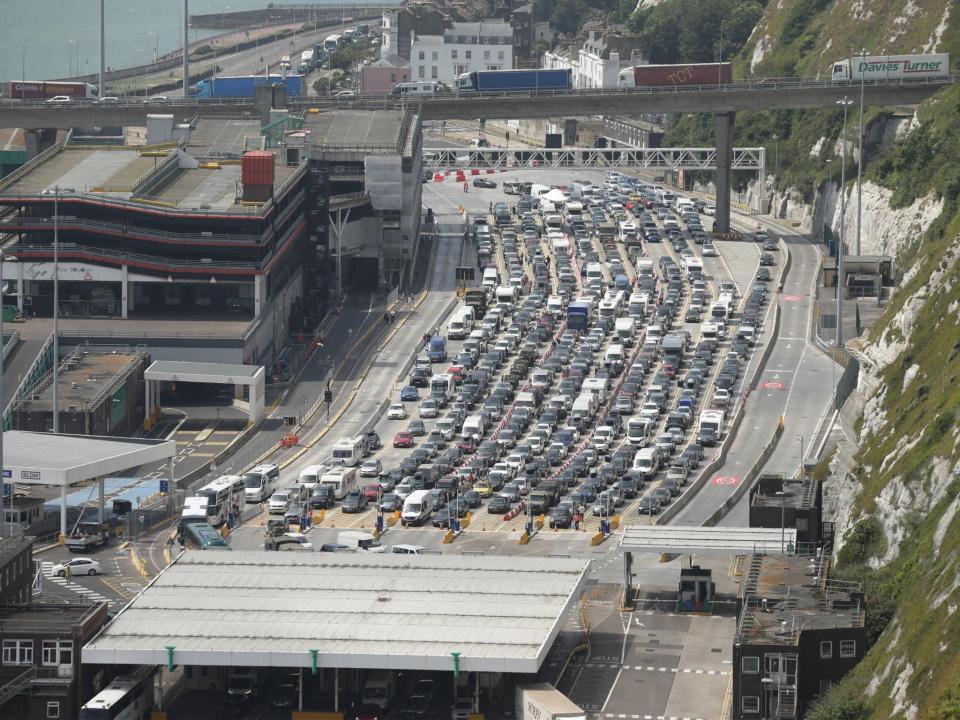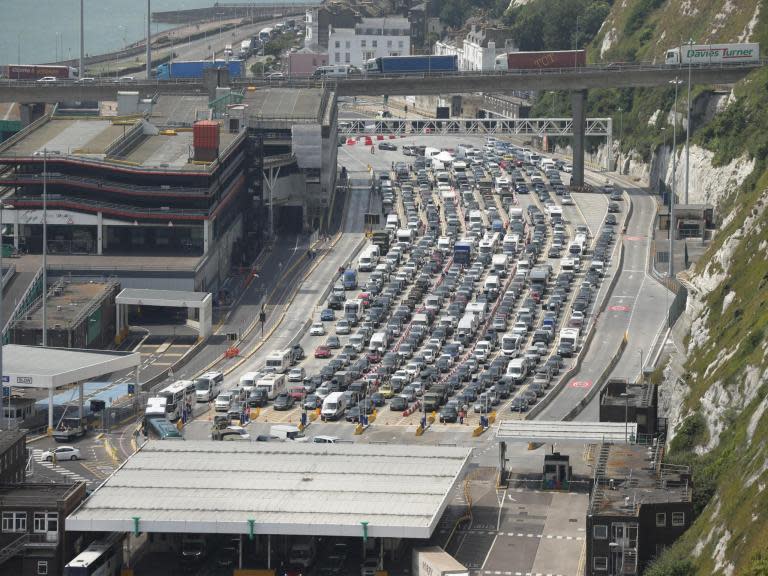Brexit: UK could be forced to charter ships to bring in food and supplies in no-deal scenario, ministers warned
The UK could be forced to charter ships to bring in supplies in the event of a no-deal Brexit, ministers have been warned.
The cabinet was briefed on plans for alternatives if new customs controls in France block the Dover-Calais route, potentially causing chaos in the English Channel, according to the Financial Times.
Transport secretary Chris Grayling reportedly discussed the possibility of hiring entire ships, or securing cargo space in vessels, to bring food, medicines and other supplies in through alternative ports.
David Lidington, the cabinet office minister, told his colleagues the Dover-Calais route could only run at a maximum of 25 per cent of its capacity under a no-deal scenario.
A department for transport spokesperson said: "We remain confident of reaching an agreement with the EU, but it is only sensible for government and industry to prepare for a range of scenarios.
"We are continuing to work closely with partners on contingency plans to ensure that trade can continue to move as freely as possible between the UK and Europe."
Labour MP David Lammy, who is pushing for Britain to stay in the European Union, said: "Brexit has become like a declaration of war on ourselves. Emergency ships will be chartered for food and medicine if we leave the EU with no deal.
"But at least when we're using ration books and running out of drugs, we'll have taken back control."
Theresa May has ordered weekly updates for her senior ministers on preparations for EU withdrawal either with or without a deal.
The updates will be delivered at the regular cabinet meeting by Brexit secretary Dominic Raab, who told ministers on Tuesday "good progress" was being made on preparing for both possibilities.
It comes after Mr Raab admitted in July the government must ensure "there is adequate food supply" in the event Britain and the EU fail to agree a deal.
He confirmed the government was making extraordinary plans to stockpile food in case the negotiations fail. He told MPs the task would be overseen by industry, rather than Whitehall.
The government’s own figures show that 30 per cent of food imports came from the EU in 2016. The next highest figure is 5 per cent – from Africa – with 49 per cent produced domestically, in the UK.
Additional reporting by PA

 Yahoo News
Yahoo News 

